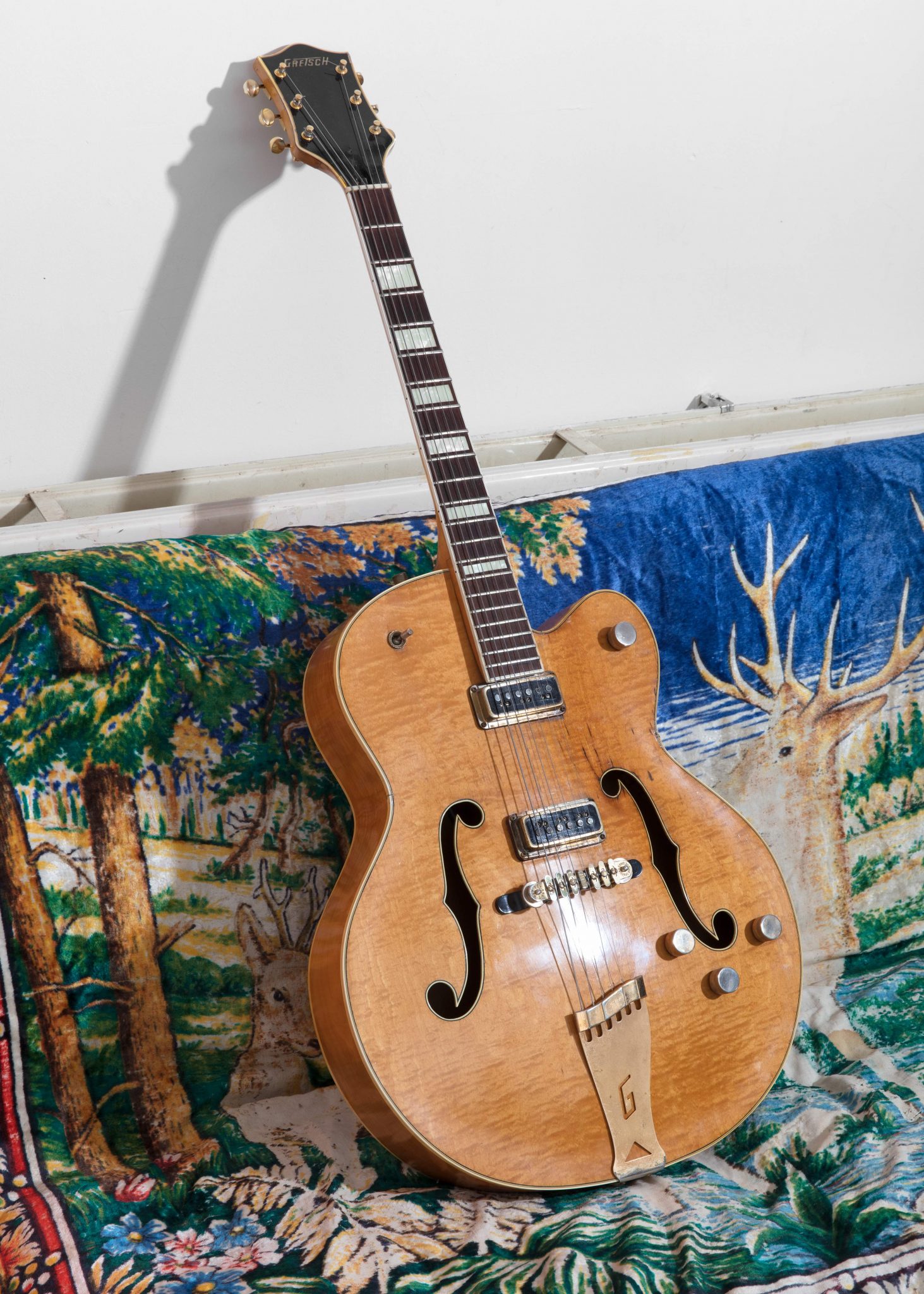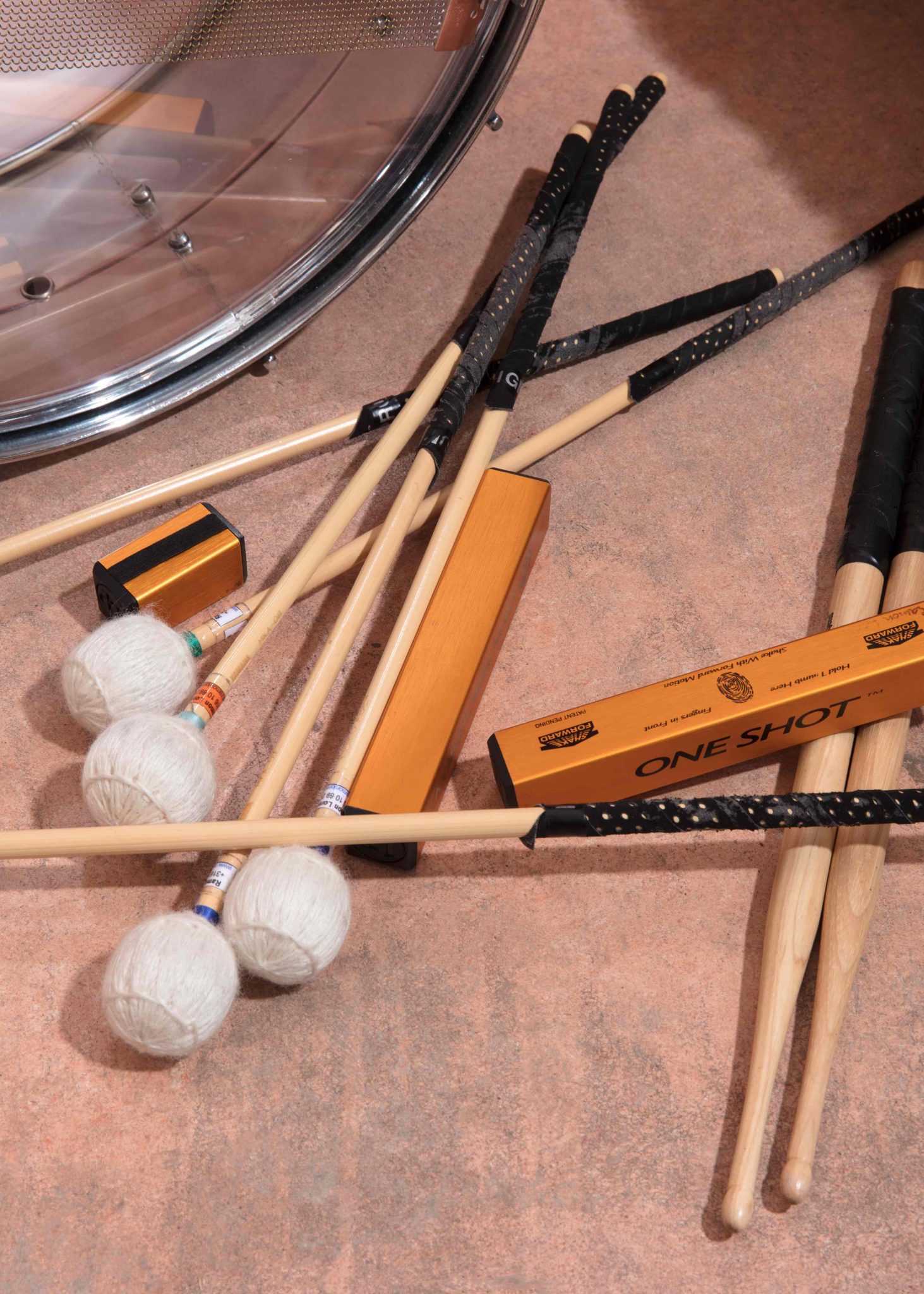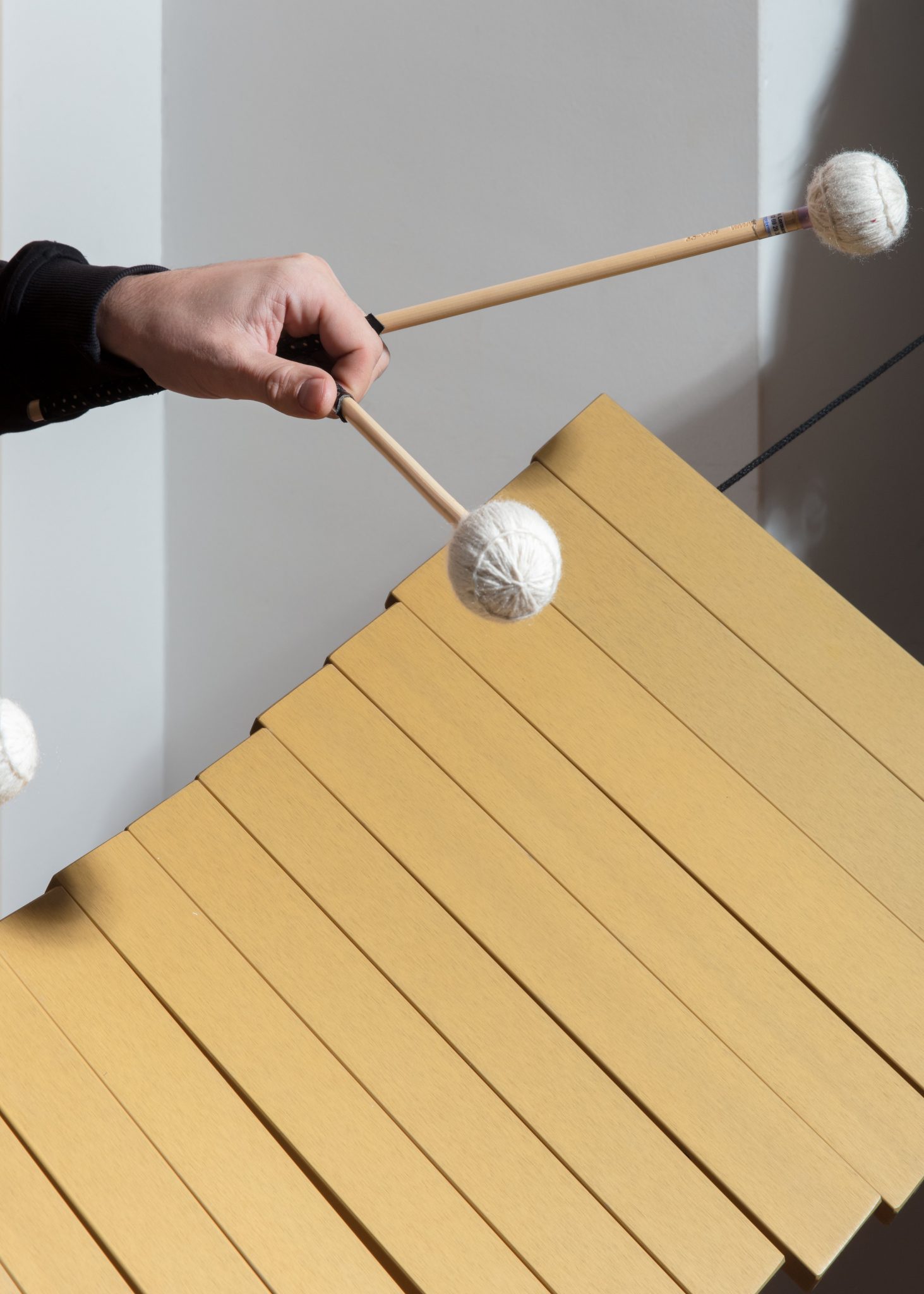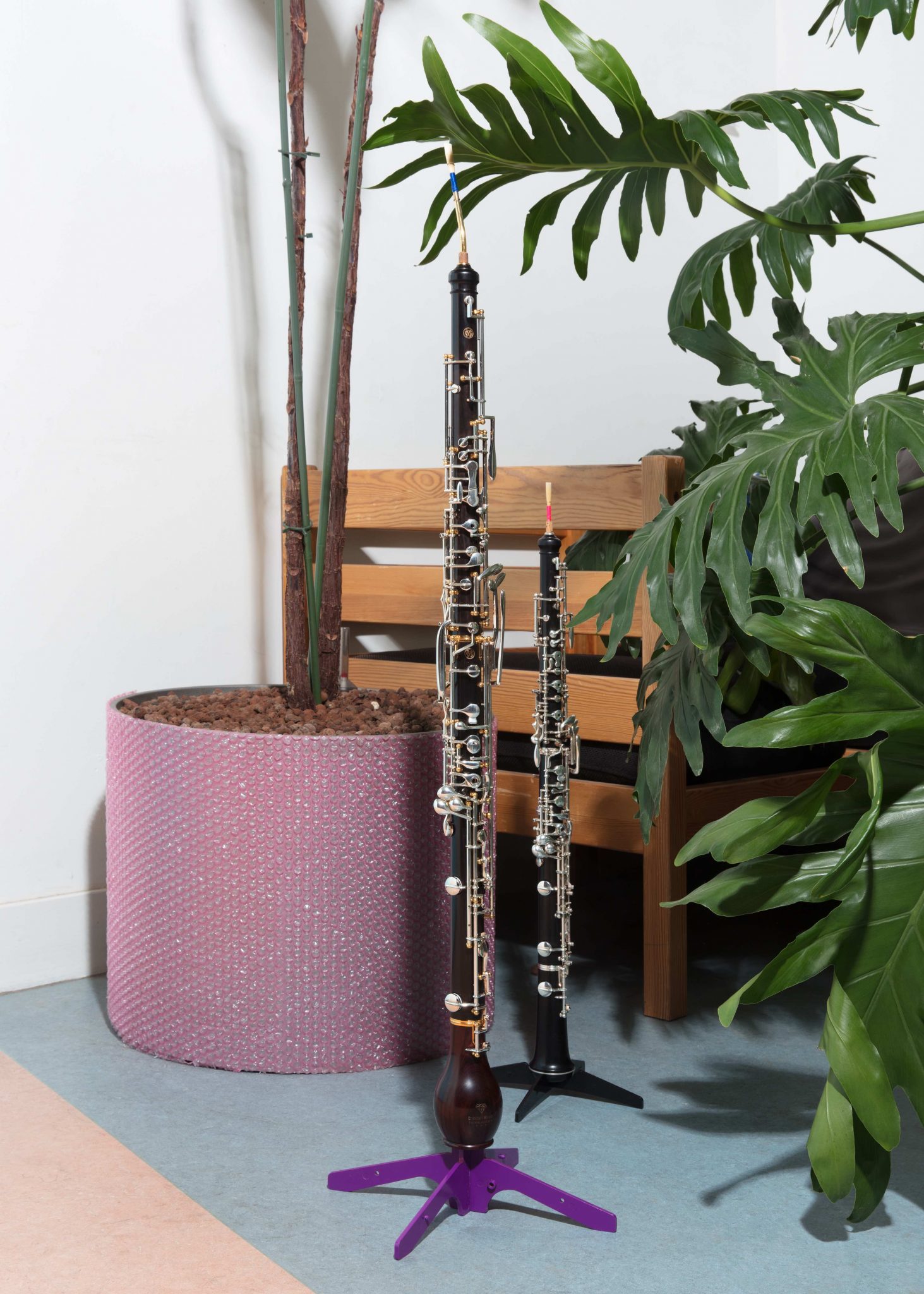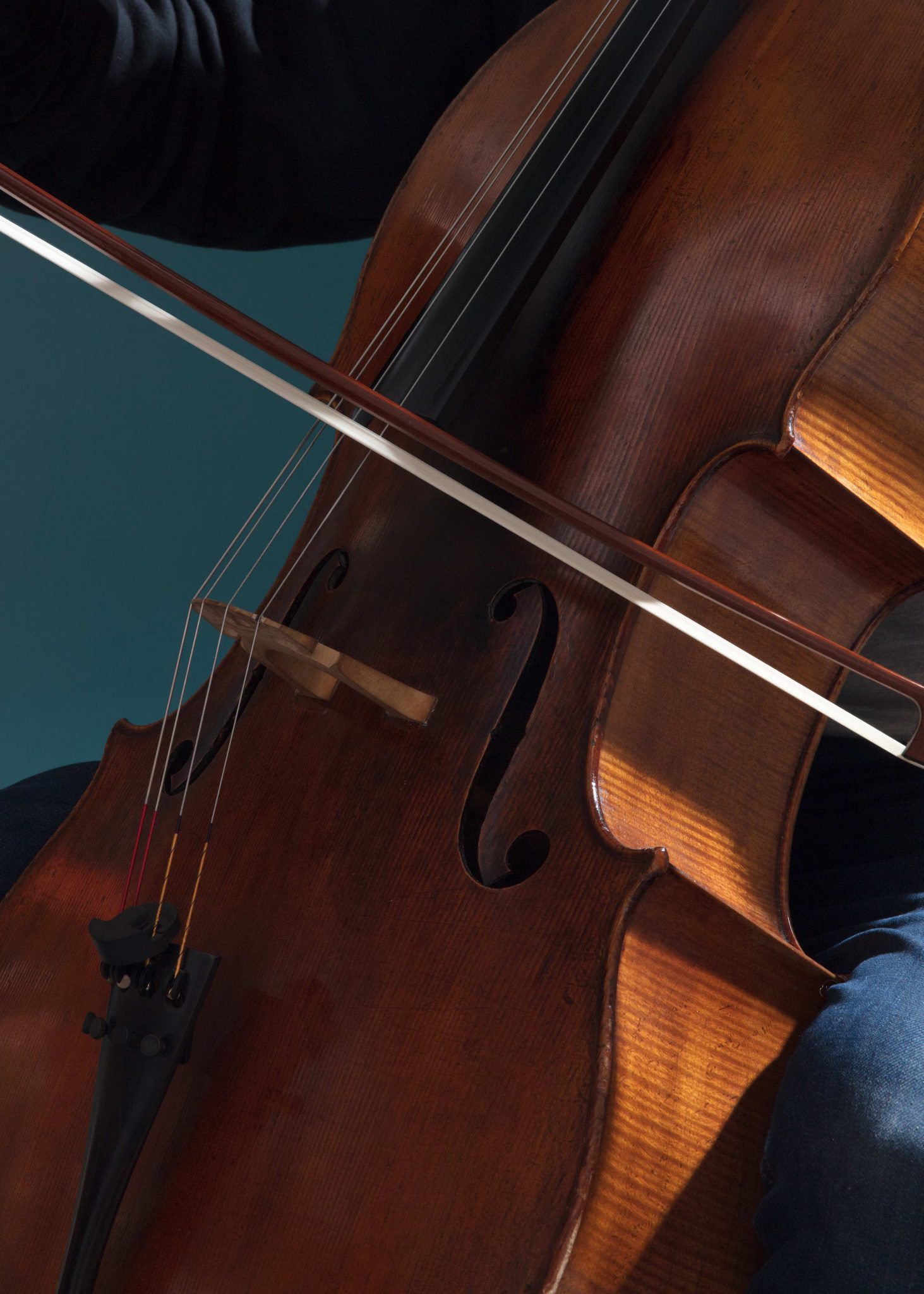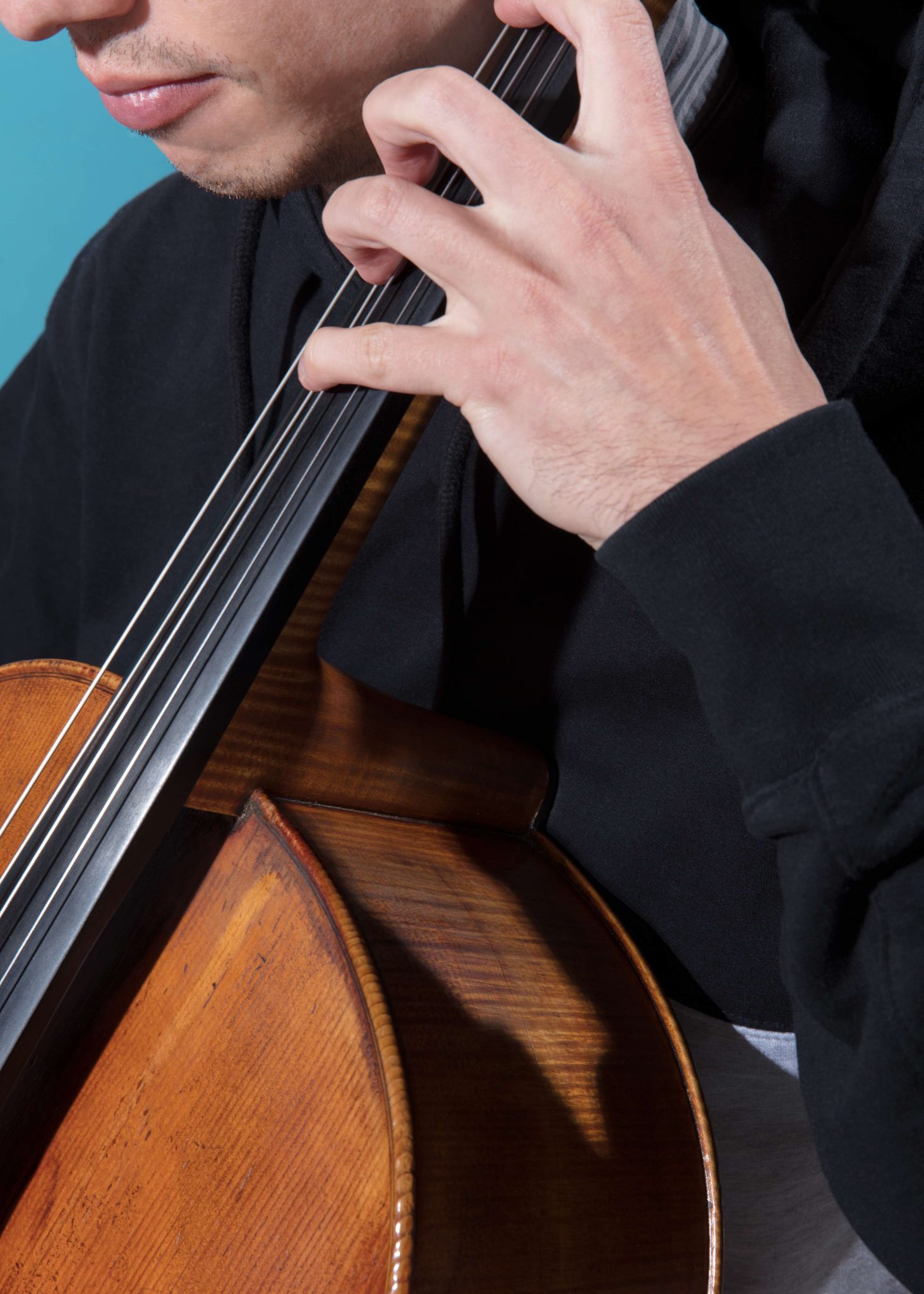S t a r g a z e
Interview by Derek Robertson
Photos shot by Lonneke van der Palen in Amsterdam, NL
Searching, yearning, looking above and beyond for deeper connections; ‘We are all in the gutter, but some of us are looking at the stars.’ Oscar Wilde’s renowned words are an apt description for s t a r g a z e. No ordinary band, they are a collective; of people, yes, but also of inquisitive minds and principles, an ethos that transcends mere instruments and egos. ‘It’s a certain spirit,’ says Merle Scheske. ‘The group develops on it’s own.’ And despite being one of the founding members, there’s no room for any primus inter pares posturing; their ‘all for one’ approach to creativity and curation is precisely what makes their performances such stellar events. Marrying modern orchestral composition with alternative music, they constantly push the boundaries of what a contemporary classical collective should be; performing with Iceage for Boiler Room, recording with electronic maestros POLIÇA; covering Boards Of Canada songs acoustically… the list is endless. We spoke to Scheske and guitarist Aart Strootman about the inspiration behind their art and looking at the heavens.
Not every group would attempt to score and replicate some Boards Of Canada music acoustically. How did that project come about?
Aart: It started after we had a residency at Into The Great Wide Open, and we were talking about our repertoire. One of us said ‘What would be really cool is to finally orchestrate this synth-orientated music.’ So, I tried to make a couple, sent them to André [de Ridder, co-founder and conductor], and he was like ‘This could work. Let’s just try it.’
How can we be a classically trained ensemble, yet perform an album that is completely electronic?
Merle: It’s the first project where we really looked into: how can we be a classically trained ensemble, yet perform an album that is completely electronic? It has led us to so many other ideas in terms of what is actually possible for us in music, and how we can approach different people to work with.
So what are the ultimate criteria then for saying ‘yes’ to people and projects?
Merle: Synergy.
Aart: Yes, and it’s more personal than just your artistry. If they spend time with the group and we investigate where we can really contribute to each other’s art, then something happens.
Merle: Somebody who can think outside of the box is essential. You can’t just say: ‘This is a classically trained orchestra, they can accompany us.’ It needs to be somebody who can truly look beyond what is already there, to really invest in a new sound and a new approach to what music is and what genres are.
Does that mean you have to say ‘no’ very often?
Merle: Yeah, we’re getting more and more strict with what we want, otherwise we see ourselves doing the same thing. s t a r g a z e is still really young, and we have to think about how we can get out there, how can we make music, and how can we survive while we do what we do. When approached with an idea we like, we always try to push it in our own direction and make something really unique. Otherwise, it wouldn’t feel right.
Does the setup of s t a r g a z e, as a collective, change between projects?
Merle: Now there is a core group, which we prefer; there is a certain understanding, and we are closer to each other. They’re all classically trained but really good at improvising and open-minded with ideas. There are all these friendships now, and that’s something that’s very energetic.
Are you all multi-instrumentalists, and switch what you play? Or try to push each other outside of your comfort zones with various projects?
Aart: It’s more about the outer stretches of what one can do within their instrument range, rather than ‘switch’ in the sense of ‘now play my clarinet’. So the flute player has a bass flute and a piccolo, and the same for guitar, there is a bass when needed. In that sense, each within their own realms, they switch.
It’s a responsibility from within, a kind of ambassadorship of your own instrument, one that’s different to anything else.
Merle: It’s about how you can actually play your instrument, because you can also fabricate noise with a bass trombone, you know? You can make effects with pedals and such like.
I imagine the dynamic of something like s t a r g a z e is very different from a normal group.
Aart: Absolutely. There is different kind of responsibility when you play in a collective like s t a r g a z e. It’s a responsibility from within, a kind of ambassadorship of your own instrument, one that’s different to anything else.
There’s a real spiritual quality to your music and performances, moments that are like catching lightning in a bottle. Do you feel it too?
Aart: Oh, there have been many, many collaborations where it was so magical in that sense, yeah. Then again, you can have certain ideas but never anticipate how it is going to work out exactly.
Merle: Very often, after a concert, everyone is like ‘OK, what just happened, that was amazing!’
Some people believe that spirituality in entwined with the stars, with horoscopes and the signs of the zodiac. Are you a believer?
Aart: I have a rather hardcore fascination with science that is beyond Earth, let’s put it that way, and I think that’s a part of it. I wouldn’t use the word “believer,” but it has raised my interest.
I am a stargazer, and I can get lost in the night sky; I am fascinated by it. Even in Amsterdam, where you don’t see that many stars.
Do you ever gaze at the night sky?
Merle: A lot. I am a stargazer, and I can get lost in the night sky; I am fascinated by it. Even in Amsterdam, where you don’t see that many stars.
What do you think about when you’re looking at the heavens?
Merle: I am overwhelmed by its overwhelming reach; I cannot grasp it. I don’t really understand the universe. We went to LA in the summer, to the Griffiths Observatory, and I loved it. It is one of my favourite spots anywhere in LA; I could just stay there forever and be happy.
S t a r g a z e play The Rest Is Noise on 13 January in Muziekgebouw aan ‘t IJ. [Show NOT free for members]. S t a r g a z e and POLIÇA release their debut collaborative album Music For The Long Emergency on 16 February 2018 via Transgressive records.
